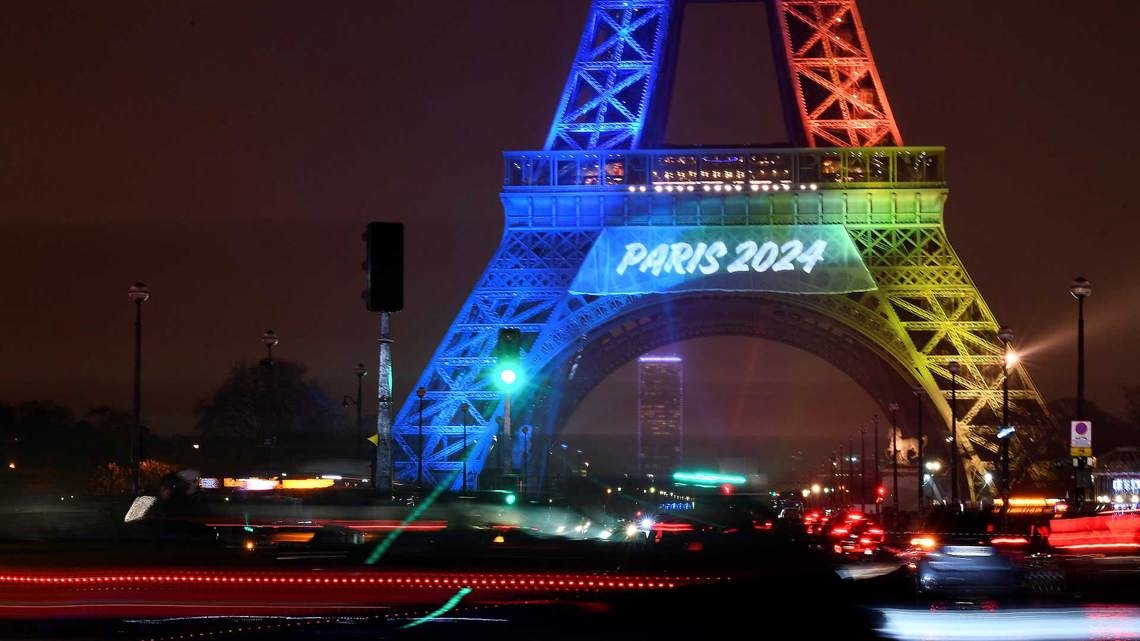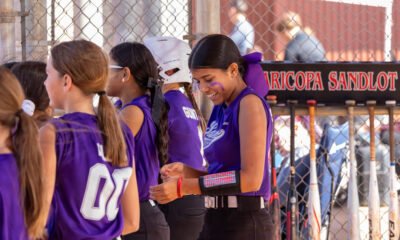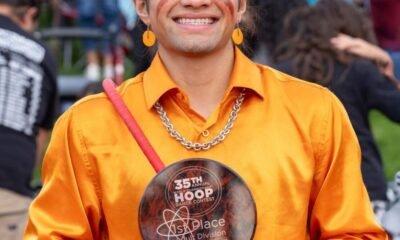home
Paris Olympics to Shine Spotlight on Booming LGBTQIA+ Athletic Community

In 2021, at least 186 athletes in the Tokyo Olympics were publicly out, a record high.
PHOENIX — The LGBTQIA+ community will have a significant presence during the Paris Olympics, beginning with the opening ceremony on Friday.
“This will be the gayest Olympics ever,” said Cyd Zeigler, co-founder of Outsports, a sports news platform focusing on LGBTQIA+ issues.
Outsports reported that the 186 out athletes at the 2021 Tokyo Games were more than triple the number at the 2016 Rio Olympics.
For the 2024 Olympics, Zeigler expects another record-breaking number of out athletes.
“The number of out athletes in Paris will be inspiring,” he said.
Zeigler emphasized that coming out is challenging, but doing so on an international platform like the Olympics adds a special dimension.
Arizona’s LGBTQIA+ athletes, including Phoenix Mercury’s Diana Taurasi and Brittney Griner, will compete in Paris. In 2022, Northern Arizona University’s Nico Young came out publicly on Instagram.
British diver Tom Daley and U.S. hurdler Trey Cunningham have also publicly come out, although Cunningham did not qualify for the Olympics.
Six-time Olympian Robert Dover was the first openly gay athlete to compete in a modern Olympic Games during the 1988 Seoul Olympics.
“I basically said that I was the United States Olympic team’s gay athlete at that point,” Dover recalled.
His press attention at subsequent Olympics was due as much to his sexual orientation as to his medal achievements.
Despite facing societal challenges, Dover was accepted by his family and community.
He initially kept his relationship private but felt it was a crucial step to come out publicly.
“It wasn’t the norm for athletes in any sports to be out back then,” he said. Concerns about sponsorships and public perception deterred many.
The AIDS crisis of the 1980s further complicated his experience.
In 1986, Dover feared he had contracted AIDS after a relationship in Fort Lauderdale. For two years, he avoided testing, dreading a positive result.
A negative HIV test result from his boyfriend eventually reassured him.
“I broke down crying,” Dover said, describing it as one of the greatest gifts he ever received.
This scare motivated Dover to support AIDS research and donate to related foundations, including amfAR.
When his equestrian governing body tried to block his announcement of donations, Dover and fellow athletes threatened not to compete. The governing body relented, publicly acknowledging his contributions.
Later that year, Dover publicly came out, leading to the establishment of the Equestrian Aid Foundation.
“That’s given millions of dollars to help people living with life-threatening illnesses and victims of catastrophic injuries,” Dover said.
While homophobia existed, Dover never encountered it within his equestrian community or among Olympic athletes.
Dover believes every coming-out event makes it easier for others to follow suit.
“Every time a gay athlete comes out, others gain a bit more courage,” he said.
He anticipates a significant number of LGBTQIA+ athletes at the Paris Games.
Olympic officials have organized a Pride House in Paris, continuing an initiative that started at the 2010 Vancouver Winter Olympics. The Pride House offers a welcoming space for everyone.
Dover and Zeigler are part of the team organizing a Pride House for the 2028 Los Angeles Olympics.
“The Pride House in Paris will be the best yet, and I can’t wait for the one in Los Angeles. It will be a historic celebration,” Zeigler said.
France’s welcoming stance toward the LGBTQIA+ community is well-known. The country legalized same-sex marriage in 2013 and has prominent openly gay public figures.
These Olympic Games are expected to be a significant celebration for the LGBTQIA+ community, Zeigler noted.
“The Olympics is an incredible celebration of how we are connected, and the LGBTQIA+ community loves it,” he added.


















